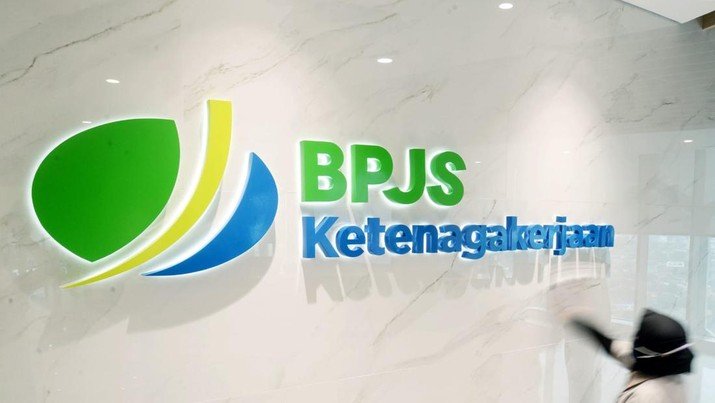Indonesia’s Employment Laws for Expats and Employers in 2025: KITAS and BPJS Explained
If you’re an employer or an expat in Indonesia, making sure that you’re aware of employment laws and frameworks is important. There are two areas that you should be aware of: the work permit system and the mandatory BPJS national insurance scheme.
Working KITAS:
A Working KITAS (Kartu Izin Tinggal Terbatas) is a temporary residence permit issued by Indonesian Immigration. When paired with an IMTA (Izin Menggunakan Tenaga Kerja Asing)—a work permit issued by the Ministry of Manpower—it allows foreign nationals to legally live and work in Indonesia long term.
It’s important to note that if you don’t have a proper Working KITAS and work in Indonesia, you can face consequences such as deportation as well as blacklisting from returning to Indonesia. As such, it’s a good idea to protect yourself by making sure you have the correct documents.
If you're planning to hire foreign talent or you're a foreigner looking to work in Indonesia, it's important to understand how the KITAS works and what’s required for the process.
Requirements for a Working KITAS (from the applicant’s side):
A valid passport with a minimum validity of 18 months
A recent photograph wearing a collared shirt, size 3x4 cm
A residential address in Bali
Qualification certificates and a college (or higher) diploma relevant to your position
Proof of work experience in your field (typically 5 years, supported by reference letters)
Clear job description and position
Travel insurance
A recent personal bank statement with a minimum closing balance of US$ 2,500
Cv & travel itinerary
Have an Indonesian employer/company lined-up to hire you
Requirements for a Working KITAS (from the employer’s side):
PT/Company incorporation documents
PT account on the Ministry of Manpower's TKA Online system (can be registered if not yet created)
ID cards of at least 10 Indonesian employees
PT must be registered with BPJS for employment
Office photograph
PT organisational structure model/plan
Holders of a Working KITAS are not permitted to work in fields or for companies other than those specified in their KITAS.
BPJS: Mandatory National Insurance Coverage
As per the latest government regulations actively enforced in 2025, all companies in Indonesia including PT PMAs, must now register with BPJS for national health insurance and employment compliance. This is non-negotiable, and the penalties for non-compliance can be severe, including up to 8 years of imprisonment or fines of up to IDR 1 billion. PTs must register with BPJS within 30 days of the company’s incorporation date.
What BPJS Coverage Includes:
1. Health Insurance (BPJS Kesehatan):
Medical coverage
Access to public and participating private hospitals
Coverage for dependents
Prescription medication benefits
2. Employment Insurance (BPJS Ketenagakerjaan):
Work accident protection
Death benefits
Old-age savings
Pension benefits
BPJS Kesehatan (Health Social Security Administering Body) is a legal entity established by the Indonesian government to implement the National Health Insurance (JKN) program.
Contribution Structure:
For employers and employees, the contribution system works on a percentage basis:
Health Insurance: Employer contributes 4%, employee 1% of monthly salary
Employment Insurance: Varies by area, but typically ranges between 0.24% to 2.04% from reported salary for basic program that cover working accident
As an employer, your responsibilities are:
Registration of your company and all employees (both local and foreign) with BPJS
Making sure your contribution payments are made on time
Proper documentation and reporting of all covered employees
Regular updates of employee status changes
Timeline for Compliance
If you're currently running a business in Indonesia and/or have employees without BPJS registration, you need to act soon. The government is actively enforcing these regulations, and delays in compliance could result in:
Fines
Legal proceedings
Your business license being suspended
Potential criminal charges in severe cases
Benefits of Compliance
Although registration may seem time-consuming, making sure that you maintain KITAS and BPJS compliance offers:
Legal protection for both employer and employees
Access to healthcare services
Long-term security through pension and employment benefits
Protection against future legal complications
Take Action
If you haven't already registered your company and employees with BPJS yet, it’s important to do it soon. You will need to:
1. Gather all necessary company and employee documentation
2. Register through the BPJS online system
3. Set up your monthly contribution payment system
4. Ensure all employees receive their right to BPJS
IMPORTANT: Even if your PT is in the early stages and has no employees yet, you are still required to register with BPJS Ketenagakerjaan within 30 days of establishing your company.
BPJS Ketenagakerjaan aims to reduce social and economic risks that workers may face due to workplace accidents, job loss, old age, or death.
Need a Hand?
If you need help understanding more about employment regulations or you’d like to save time with registering your employees for BPJS, reach out to us at Bali Solve and let us help you get it done quickly and easily. With the new regulations in force, we recommend acting soon to make sure your business is compliant.
As Bali's premier business consulting agency, we've helped hundreds of companies complete their BPJS registration and maintain their records. It’s not worth risking your business's future or your employees' wellbeing, so drop by our Pererenan office or contact us via WhatsApp to arrange a consultation with one of our expert team members.
Written by Team Bali Solve
07 April 2025



